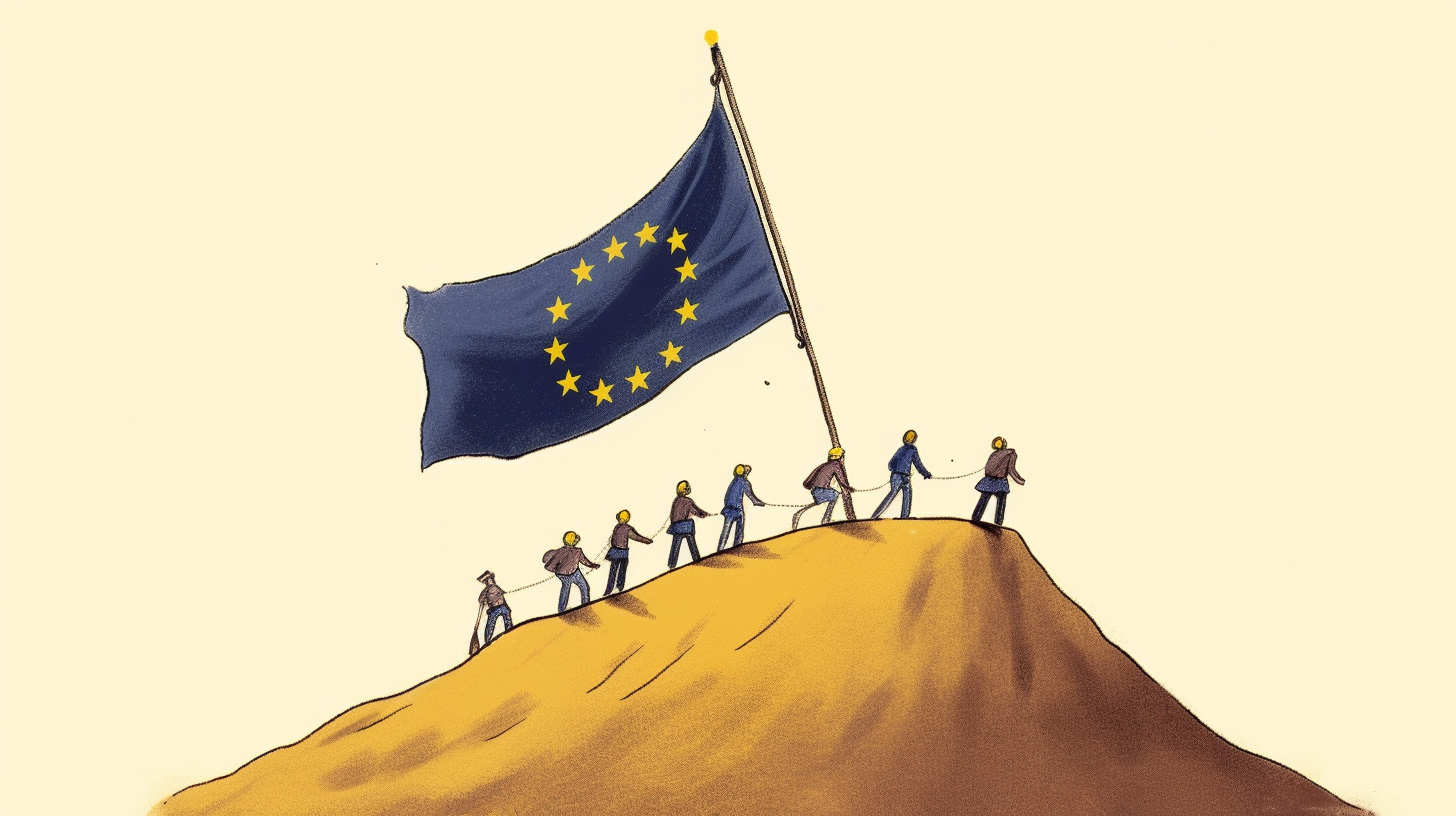Italy & Europe, Why Greeks Had no Hurdles in Approving the Modified ESM
The ratification of the modified ESM treaty by the Greek parliament took place easily, and smoothly, without the usual political tensions. The text was submitted to the plenary on the 28th of June 2021 and a week later, on July 6th, it was adopted by a large majority. Only the Greek Communist Party and minor parties of the extreme left and right voted against it. It was practically a non-issue for the mainstream Greek political parties and Greek citizens. Why so?

The ratification of the modified ESM treaty by the Greek parliament took place easily, and smoothly, without the usual political tensions. The text was submitted to the plenary on the 28th of June 2021 and a week later, on July 6th, it was adopted by a large majority. Only the Greek Communist Party and minor parties of the extreme left and right voted against it.
It was practically a non-issue for the mainstream Greek political parties and Greek citizens. Why so?
Firstly, the Greek political system, the media, and Greek society traditionally - and regrettably - do not follow closely European Integration process. The culture of active participation in building the EU of tomorrow is quite weak and focused on issues that have a direct and immediate impact on national interests or concerns.
Apart from this general remark, there is something more concrete regarding the ratification of the new ESM treaty.
The third adjustment program of Greece (2015-2018) was agreed with the ESM under its status and the modifications included in the new treaty are very much in the right direction.
But it is not just the ESM.
The 2015 Watershed
There is clearly an ex-ante and an ex-post period in relation to the attitude of Greeks towards the EU’s fiscal policy and financial institutions and the milestone between them lies in 2015.
Until then, Greek people - whom the crisis caught by surprise - were furious against the EU, and especially Germany as the country with a dominant role in the overall crisis management.
To a large extent, reactions were justified as some policy measures included in the adjustment programs and delays and errors in the decision-making process created further burdens on an already exceedingly difficult situation.
Still, something was missing. The management of the crisis is one thing, its grassroots is another.
A large part of the Greek political system was quite reluctant to touch upon the deeper causes of the crisis, the chronical deficiencies in national fiscal policies and the structural weaknesses of the Greek economy. Why? Simply because this presupposes a strong self-criticism. As we all know, this is – and certainly not only in Greece – a difficult choice, so parties preferably turn to mutual accusations.
As a result, the perception consolidated little by little in the Greek public opinion was that the adjustment programs and the “Troika” (EU Commission, ECB, and IMF) were the only ones to blame for the crisis, the deep recession, and the skyrocketed unemployment.
The fact that our financial collapse coupled with the deep competitiveness crisis of our economy (the famous twin double-digit deficits in 2009) obliged Greece to ask for financial support to avoid a disorderly default was systematically underestimated in the public discussion.
Under these circumstances, it was not a surprise that in January 2015 the leftist party Syriza won early parliamentary elections promising to abolish “in one night” the adjustment program and “send Ms. Merkel at home”.
Syriza formed a coalition government with a smaller extreme-right party and after six months of deadlocked negotiations with Brussels, they proclaimed a referendum on the draft agreement presented by the “Troika” for the completion of the second adjustment program.
The government clearly and openly campaigned against the approval of the program and despite the remarkable mobilization of pro-European civil society and parties, the “No” prevailed by a large majority of 61,3%.
The announcement of the result sent dozens of thousands of Greeks to the streets to celebrate. They believed that better days were ahead of us, within the Eurozone but without the painful obligations of the adjustment programs that had been “imposed” on us by “vengeful Europeans”.
Celebrations didn’t last long. Instead of the promised better days, the rejection of the proposed agreement brought Greece to the brink of exit from the Eurozone and finally led to a third unnecessary adjustment program and to a further prolongation of the crisis.
Apart from these false and thus broken expectations, another concrete example has contributed to the above-mentioned change of attitude:
In the late 90s, when Greece was completing preparations to join the eurozone the then prime minister Costas Simitis appointed a special committee to examine the Greek pension system -clientelist and unsustainable- and submit proposals for reform.
This initiative provoked such major reactions from the whole political spectrum (including the then governmental party) and the syndicates that the project of consolidation was abandoned and the system remained intact.
As a result, 10 years later it became one of the critical factors that led to the financial collapse. The reform we were unwilling to launch at the right time, on our own initiative and ownership, was de facto imposed on us in a brutal and painful way.

Until 2015, Greek people - whom the crisis caught by surprise - were furious against the EU, and especially Germany as the country with a dominant role in the overall crisis management
Lessons learned
People from other European countries are often wondering whether Greeks still feel angry, bitter, or even betrayed by the EU because of this extremely painful period they have experienced. The answer is that the experience of the crisis has significantly modified the way Greek people approach national and EU politics and policies. There are lessons learned and conclusions drawn.
Greeks are still interested in EU fiscal solidarity issues but the approach is different than in the past. They have distanced themselves from previous attitudes according to which Europe is the first or the only to blame for the “Greek malaise”. They have learned out of a painful experience that EU fiscal (and not only fiscal) solidarity is a fundamental issue which cannot be decoupled from national fiscal responsibility. And that adaptation and reform is rather a necessity than an EU imposition. Thus Greeks have become more demanding and critical towards their national political system and more suspicious towards economic populism.
The smooth approval of the modified ESM treaty reflects to a large extent this change of attitude. It was conceived, rightly I believe, as a step in the right direction. This was not the only institutional reform that took place during or in the aftermath of the eurozone and the pandemic crisis.
The eurozone architecture has evolved although there are still significant steps ahead of us in terms of institutional developments and economic governance reform. Discussions are progressing slowly as a lot of disagreements among m-s persist. Sometimes together with old-fashioned and stereotypic approaches that still divide EU countries into “fiscally prudent and irresponsible ones”. But this is exactly the change of attitude needed so much in the EU level.
Since the COVID-19 pandemic and Russia’s aggression to Ukraine, we are witnessing a significant rise in the geoeconomic risks, as Great Power rivalry (USA, China, EU) in the economic domain is accelerating. During the recent energy crisis, we have experienced Vladimir Putin’s attitude to weaponizing energy, but in reality, we are all faced with a much broader challenge, the weaponization of economic relations. Are we ready for that? How do we intend to address this challenge? Each member state on its own or the EU as a whole?
These are the fundamental questions that lay ahead of us, ahead of each member state and the EU. These questions that need to be answered on time and adequately are inevitably interrelated with the ongoing discussions on economic governance reform.
The decisions we are going to make on improving our economic governance framework have to reflect not only lessons learned from the past but also, even more importantly, challenges that lay ahead of us in a very rapidly changing environment.
If we mean that unity is our strength we have to design and implement rules that serve this ultimate goal. Breaking the national silos is a crucial prerequisite and in order to multiply the chances of success we must exhaust every possible means to have the EU civil society on board.
IEP@BU does not express opinions of its own. The opinions expressed in this publication are those of the authors. Any errors or omissions are the responsibility of the authors.
